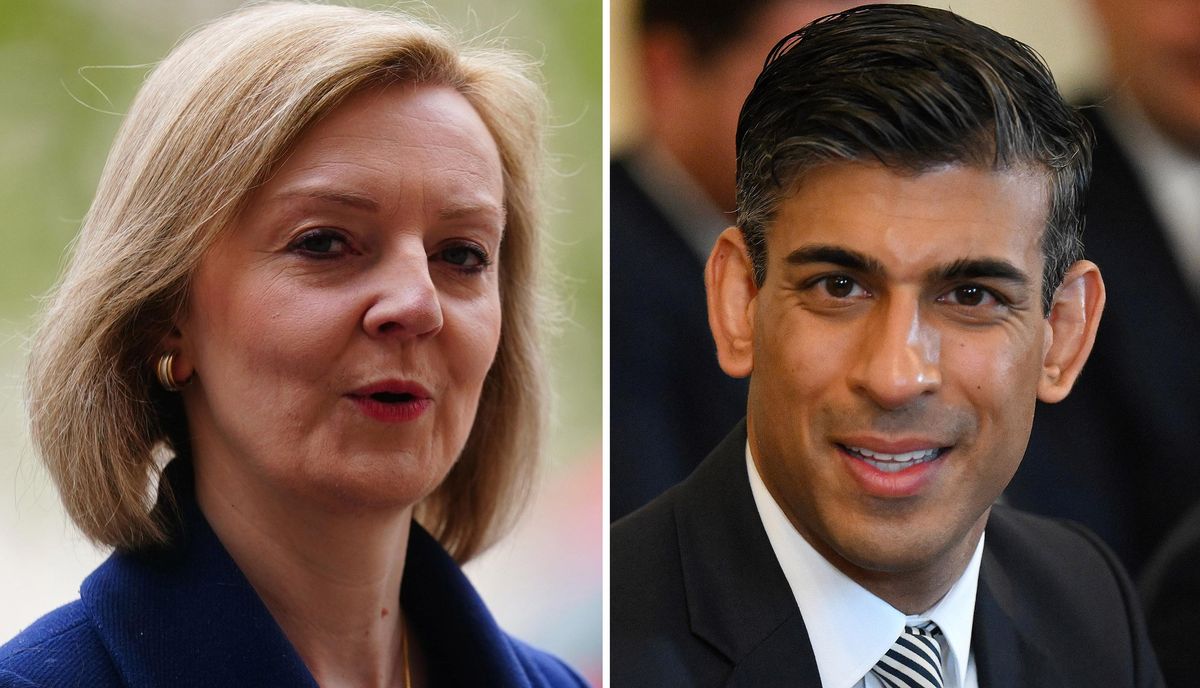UK Conservative Party MPs voted on Thursday to advance Rishi Sunak and Liz Truss to the final round of balloting for leadership of their party.
Some 160,000 party members around the country will now vote by mail to decide which of these two will serve as the UK’s next prime minister, at least until the next national election. The result of the vote won’t be known until Sept. 5.
On Monday, the two candidates will have their first head-to-head debate as the race enters the homestretch.
Who is Liz Truss? Truss is a political veteran who has served as both post-Brexit international trade secretary and foreign minister. She has “campaigned openly as the Continuity Johnson candidate,” according to Eurasia Group’s top Europe analyst Mij Rahman. Her country-first nationalism suggests she’d drive a hard bargain with the EU on the Northern Ireland Protocol issue, for example.
That’s why, Rahman says, Truss is “the candidate the EU least wants to win.” Like most of the rivals she’s overcome to reach this point, Truss has also called for tax cuts to stimulate the UK economy.
What do her supporters say? She’s “Boris without the baggage,” a talented true conservative untainted by the scandals that sank outgoing Prime Minister Boris Johnson.
What do her critics say? She’s a politician without principle. During the 2016 referendum for the UK to remain within the EU, she warned that Brexit meant “more rules, more forms, and more delays when selling to the EU.” Then the opportunity to serve in Johnson’s government persuaded her to become a hardline Brexiteer.
Who is Rishi Sunak? Sunak is best known for serving as chancellor of the Exchequer, Britain’s chief financial officer, during the pandemic. He directed heavy spending to help struggling individuals and businesses and to boost the UK’s flagging economy. Sunak is the eldest son of Indian immigrants and a symbol for many of a modern, multi-racial Britain.
What do his supporters say? Sunak’s reputation as a capable technocrat makes him more likely to win a national election by winning over moderate voters made uncomfortable by the Conservative Party’s lurch to the nationalist right in recent years. His principled stand that tax cuts should be delayed until the UK is on firm economic footing demonstrates that he puts the country first.
What do his critics say? Sunak is a backstabber and political opportunist. Though fined for involvement in Johnson’s lockdown scandals, he was among the first to signal no-confidence in Johnson’s government by resigning his post when he thought it would boost his chances of becoming prime minister.
National elections outlook: To this point, the candidates have competed for votes among their Conservative Party colleagues in parliament. Now they must win the hearts and minds of their party’s rank-and-file nationwide.
The winner of this party leadership contest, who will immediately become the new prime minister, must quickly prepare for national elections that will test the Conservative Party’s ability to win voters from beyond its reliable base, an electorate traumatized by inflation and economic weakness.
There are big differences between Conservatives and other voters. The Conservative Party membership is 63% male. More than three-quarters of its current voters supported Brexit. Some 56% live in London and England’s southeast versus 20% in the north of England and just 6% in Scotland.
Early polls suggest Truss opens the race with a sizeable advantage. “Sunak must turn the tide quickly,” Rahman notes. “Members get their ballot papers in the first week of August, and many will vote early.”
With Monday’s debate (9 pm BST on BBC), the six-week sprint to lead the party is on, and both candidates have a real chance to win.






